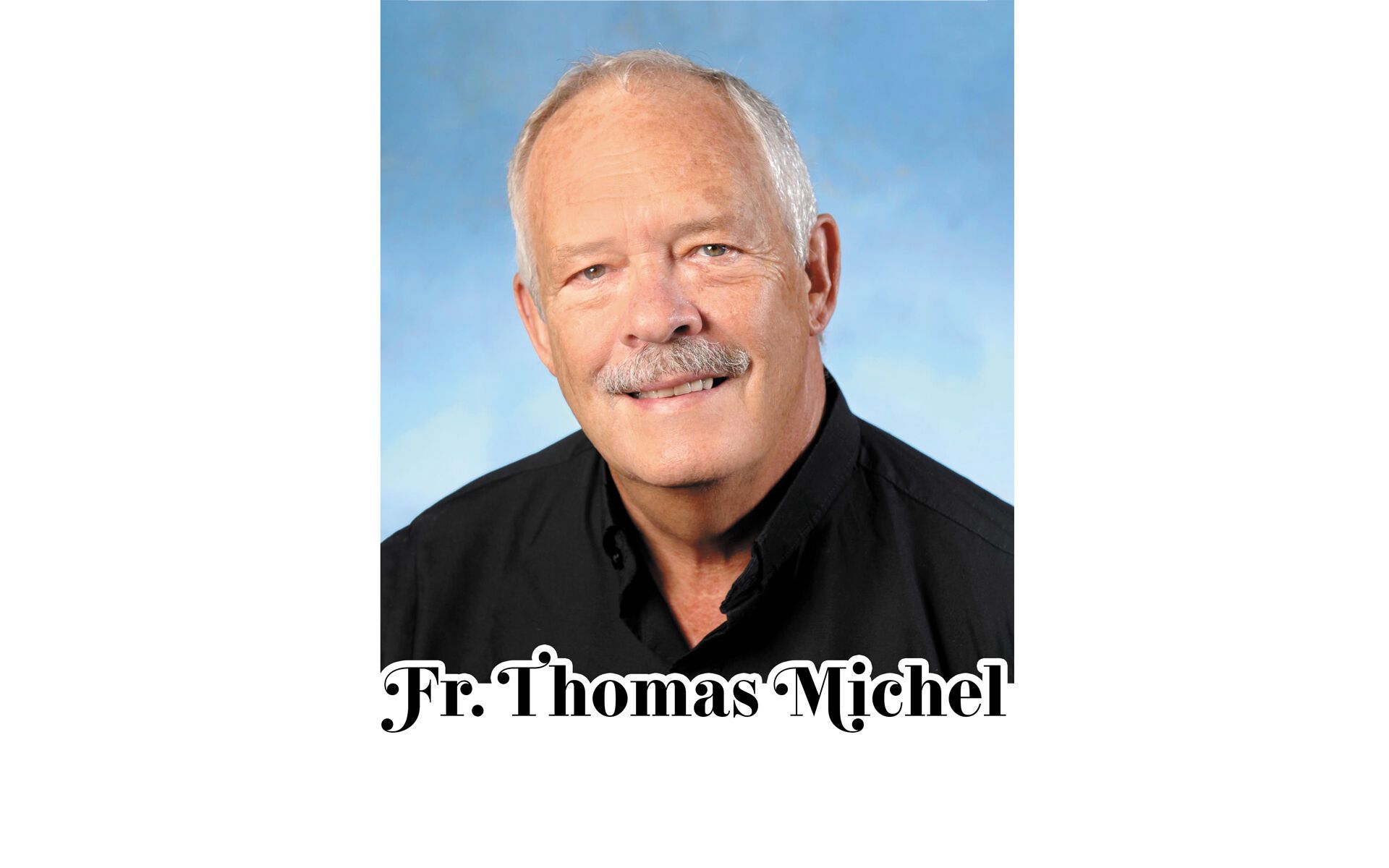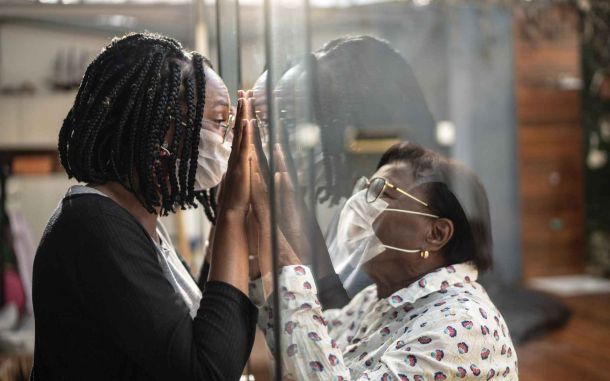Fr. Thomas Michel

In This Article
-
Fr. Thomas Michel is an inspiring scholar and thinker who continues to play a key role in promoting peace between Muslims and Christians throughout the world.
-
Fr. Michel lives in a small room as a recluse in the administrative building of the school where he teaches. His life is one dedicated to the path of education, similar to Fethullah Gülen, who lives in a small room among his students.
-
“When I visited Zamboanga, in the south of the Philippines, because of the conflict between Christians and Muslims, to see what could be done to establish peace and tranquility between the peoples of the region, I saw a building in the middle of the conflict and a signboard with the words ‘International Tolerance School.’”
When our plane landed in Chiang Rai, the northernmost city of Thailand, my friend and I were at the peak of our excitement.
We were excited because we were going to meet the venerated Fr. Thomas Michel, a scholar and thinker who had met the Hizmet Movement in the budding days of its interfaith dialogue movement in Turkey; Fr. Michel had become one of the movement’s first dialogue friends.
Thomas Michel was born in 1941 in St. Louis, Missouri. The family’s fourth child, Fr. Michel had an older brother and two sisters. His father worked as an accountant for the US Postal Service, and his mother was a homemaker. Describing his parents as profoundly devout Catholics, Fr. Michel also stated his mother’s diligence at church activities. He cherished the environment in which he grew up; he decided early in his life to become a priest and serve God through His people. In 1967, he was ordained as a Catholic priest and began his ministry.
Fr. Michel was kind enough to welcome us at the airport with his humility, modesty, energy, and loving gaze, although we had never met before. Without delay, we were on our way to his educational institution, 30 minutes from the city center.
Fr. Michel, who was in his 80s, fascinated us with his every gesture and kindness, and got younger in our eyes with his energy. During our conversation along the way, we learned that Fr. Michel had settled in Chiang Rai for an educational project carried out by the Jesuits in a village close to the “Golden Triangle,” where the borders of Myanmar, Laos, and Thailand intersect, and that he was working as an English teacher in the school. He gave us a detailed tour of the grounds. Finally, he explained the details of the church they had recently laid the foundation for and built as an annex. When we learned he lived in a room on the second floor of the main administrative building and lived his life as a recluse, my friend and I exchanged glances, perhaps feeling the bliss of meeting another life dedicated to the path of education, similar to the life of the venerated Hodjaefendi, who lived in a small room among his students.
Fr. Thomas Michel is a man of heart who competently understands his time and the age he lives in. He applies this sensitivity and understanding with a positive action-based life philosophy without confining it to the molds of inert thought and spreads and gives color to his ideals and values wherever he goes. When he was a teacher in Indonesia, his Muslim students asked him, “If you want to study Christianity, why don’t you consider studying Islam as a bridge for the followers of both religions to better understand and recognize their faiths?”
Fr. Michel said, “I didn’t know much about Islam until then. I accepted the advice of my students and decided to do a PhD on Islam.”
Although these Muslim students did not realize what a great good they were doing, Fr. Michel would then chart a distinctive path for himself and would become one of the architects of a great friendship between Christians and Muslims.
Having completed his PhD in Islam with a dissertation titled “Ibn Taymiyah’s Al-Jawab al-Sahih: A Muslim Theologian’s Critique of Christianity” at the University of Chicago, Fr. Michel studied Arabic in countries like Egypt and Lebanon and had the opportunity to meet and get to know Muslims in several Islamic countries. Speaking about this period as a doctoral student, Fr. Michel said, “The renowned Pakistani Professor Fazlur Rahman was my Ph.D. advisor. It was under his supervision that I studied the main sources of Islam and in particular the works of Ibn Taymiyah.” All this training would open the door for Fr. Michel to become the head of the Office for Relations with Muslims at the Vatican.
Fr. Michel, who was in charge of the Pope’s relations and communication with the Muslim World at the Vatican between 1981 and 1994, would also meet some acquaintances that would make a great impression. During this period, an official academic exchange program was signed between Turkey and the Vatican to provide mutual education on Islam and Christianity. “On this occasion, I visited and lived in Turkey several times, sometimes for a long duration,” said Fr. Michel, “I gave lectures on Christianity at the theology faculties of universities in Ankara, Konya, and Izmir.” Fr. Michel also said he had the opportunity to visit several provinces in Turkey and get to know many people through various programs. As he recounted some of his experiences, he made us smile and reminded us once again how crucial it is for people of different faiths and religions to get to know one another.
When he came to Konya to deliver a six-month training program, Fr. Michel said, “I had rented an unfurnished detached house, so I went out to buy some things. On my way home, as I was carrying the floor mattress I had bought on my back, the neighbors asked who I was and what I was doing. I told them that I was American and that I had come to the Selcuk University as an instructor. They asked what I taught, and I told them that I was a lecturer at the Faculty of Theology. ‘Then you are a Muslim,’ they said, and I replied, ‘No, I am a Christian and I teach Christianity.’ Some neighbors accompanied me home. Soon they brought tables, chairs, and kitchen utensils. My house was ready in an instant. When I came back from the university after my first shift on Monday, I saw someone I didn’t know sitting at the doorstep of the house. We exchanged greetings. He told me he had been there for some time but couldn’t enter the house, so he waited for me at the door. When I said, ‘I had locked the door and left,’ he said, ‘You don’t need to lock your door, everyone knows one another here. There are no strangers here. Anyway, we will take care of your house and protect it.’ This was something I was not used to.
“The next day, I said to myself, ‘Okay,’ and left the house without locking the door. When I came back from the university, I was surprised by the sight! There was food in the kitchen, my clothes were ironed, and the house was tidy. This continued for the six months I was there.” On the last day, before leaving, to thank the gentlemen and ladies who prepared food for him and helped him daily, Fr. Michel asked the person he had seen waiting outside his door “Can you put me in touch with them? He said, ‘There is no need. Because these people did it for the sake of God, not for you. And since He sees it all, there is no need.’
“This answer touched me deeply and I will always remember it as a living example of the truth of Jesus Christ’s saying, ‘The good deed of one hand should not be seen by the other.’”
Fr. Michel said he had experienced another interesting incident in Gaziantep, Turkey, and that he was more impressed by the theme and the details than the incident itself. “I visited the educational institutions opened by the Hizmet Movement both as part of my duties in the Vatican and on other occasions. I had visited an educational institution in Cambodia. Long after this visit, I met a plumber who owned a small business in Gaziantep, a city I visited on one occasion in Turkey. While talking to him, he told me, ‘I am sponsoring a school abroad.’ When I asked him where and which school he sponsored, he told me the name of the school I had visited in Cambodia. It is rather original and exquisite that a group of Muslims from Gaziantep organize such activities in Cambodia, a Buddhist country, regardless of faith. I was particularly impressed by the dedication of the people and the fact that they carried out projects far beyond their means.” When we asked Fr. Michel the reason for his visible love and affection for the Hizmet volunteers, he said, “I love them because I see them doing the things that I have been trying to do and that I have dedicated my life for. That is why I am happy to be with them.”
He recounted another incident that profoundly moved him: “When I visited Zamboanga, in the south of the Philippines, because of the conflict between Christians and Muslims, to see what could be done to establish peace and tranquility between the peoples of the region, I saw a building in the middle of the conflict and a signboard with the words ‘International Tolerance School.’ I walked inside with my team and saw it was an educational institution where Christian and Muslim children received education together. Witnessing this Hizmet school standing like an island of peace amidst conflicts and tensions, and witnessing the educational activities carried out there, we once again realized the importance of the Hizmet Movement’s contributions.”
Fr. Michel, who was in Turkey in the ’90s, speaks with pride about the students he met there. He says he experienced no negative incidents, that Muslim Turkish university students respected him, and that a relationship developed between them that led to constructive friendships. Fr. Michel got to know the Risale-i Nur by Bediuzzaman Said Nursi and met Fethullah Gülen on the advice of his Turkish students. These encounters left an indelible mark on his life. “I had never heard the names of these two precious Islamic scholars before,” says Fr. Michel.
Talking about the meeting between Fethullah Gülen and Pope John Paul II and the preparations for this meeting as the head of the Department for Relations with Muslims, Fr. Michel said, “This meeting proved immensely productive in terms of preparing the ground for miscellaneous exquisite projects,” adding that he welcomed Fethullah Gülen to the Vatican where the meeting was to take place and explained the details of the meeting: “On that day, Hodjaefendi proposed to the Pope a joint university project in which all religions would be taught in tandem with positive sciences, emphasizing the significance of the people of different faiths getting to know one another and that this would contribute significantly to world peace. Finding this proposal appropriate, the Vatican assigned me to do the groundwork and plan the joint project. Subsequently, different initiatives and meetings were held in Sanliurfa.” Fr. Michel expressed his deep regret that this project ran into political and financial issues and wasn’t completed.
When we asked Fr. Michel what advice he would give young people seeking to pursue interfaith dialogue, he said, “Half of our lives are spent cooking and eating, and we always live these moments with someone else. We should find opportunities to share this time with people of different faiths and build bridges of love in this way.” He added, “You will always meet people who hate these activities, but never be disheartened… I always advise everyone, especially Christians, that if they receive an invitation from Muslims to iftar dinners or other programs, they should attend. I tell them, ‘Meet them. You will see that these occasions open doors to so beautiful friendships.’”
Fr. Michel has made key comparative readings and assessments on the dialogue aspects of Christianity and Islam, especially in his books Insights from the Risale-i Nur: Said Nursi’s Advice for Modern Believers and Peace and Dialogue in a Plural Society: Contributions of the Hizmet Movement at a Time of Global Tensions, which he wrote after being acquainted with the works of Bediuzzaman Said Nursi and Fethullah Gülen.
Bediuzzaman Said Nursi talked about the importance of Muslim and Christian unity in the 1910s. The word that appears frequently in the Risale-i Nur, is ‘ittihad’ i.e., union, a stronger and more encompassing word than dialogue (Peace and Dialogue in a Plural Society: Contributions of the Hizmet Movement at a Time of Global Tensions, p. 36).
It has been noted that, “The fact Said Nursi mentions only Christian unity and not Buddhist, Hindu and several other faiths in the Risale-i Nur Collection may be due to the fact that Anatolia was not close to these faiths and geographies at the time the works were written” (Insights from the Risale-i Nur: Said Nursi’s Advice for Modern Believers, p. 15).
Fr. Michel points out that Said Nursi refers in his Risale-i Nur to the fact that it would be a great mistake to consider Christianity an enemy, and emphasized that Nursi said that the biggest enemy of both religions are ‘ignorance, poverty and division,’ and that Muslims, Christians, and Jews can overcome this by fighting against them together (Peace and Dialogue in a Plural Society: Contributions of the Hizmet Movement at a Time of Global Tensions, p. 32). Gülen went even further: “The fact Fethullah Gülen says and writes that all faiths in the world, even atheists, should be included in dialogue efforts shows how open and inclusive he is on this issue” (Peace and Dialogue in a Plural Society: Contributions of the Hizmet Movement at a Time of Global Tensions, p. 147). “Fethullah Gülen says the prescription for humanity to avoid a common conflict is common respect and understanding” (Peace and Dialogue in a Plural Society: Contributions of the Hizmet Movement at a Time of Global Tensions, p. 48)
Commenting on the overlapping ideas between Pope John Paul II and Gülen, Fr. Michel wrote that, “Both believe that peace can be achieved through justice and forgiveness” (Peace and Dialogue in a Plural Society: Contributions of the Hizmet Movement at a Time of Global Tensions, pp. 44).
In a section in which he compared Pope Benedict XVI and Gülen, Fr. Michel noted that both emphasized the importance of love and truth in democratic societies, and that at this point they were similar in terms of their interpretations and discourses on religion-democracy, religious freedoms, and democracy-social development: “You can see how Pope Benedict and Gülen want to realize in a similar way what we might call Christian Humanism and Islamic Humanism in the name of modern societies today, where democracies are in fact active and societies have reached this level” (Peace and Dialogue in a Plural Society: Contributions of the Hizmet Movement at a Time of Global Tensions, p. 51).
Fr. Michel stated that Gülen’s educational philosophy is the basis of the education system in Hizmet schools and is a reflection of Said Nursi’s “Unity of Mind and Heart”: “It is seen that Gülen attempts to put forth an education model for future generations in which they can be ‘integrated with their past and best equipped for their future.’” Fr. Michel quoted Gülen on the religion-science divide: “Soon the long-standing conflict between religion and science will come to an end, or at least be recognized as an absurd situation.” He also referred to Gülen’s works, where Gülen has stated that the future of societies will be shaped by the quality of education they give to their youth (Peace and Dialogue in a Plural Society: Contributions of the Hizmet Movement at a Time of Global Tensions, p. 68)
This is just a short introduction to the ideas of Fr. Thomas Michel, a profoundly valuable scholar and thinker who has led interreligious dialogue activities and lived every moment of his life believing in the importance of this issue. We hope that distinct minds—like Fr. Thomas Michel— who believe in the unity, brotherhood, and peace of all faiths can foster this vision and influence the advocates of dialogue and peaceful coexistence through his inspiring life. In this way, a growing number of people can act as antidotes to unproductive debates and tensions and contribute to the peace and tranquility of humanity.
Fr. Thomas Michel – A life dedicated to education and interfaith dialogue
- Born in 1941 in St. Louis, MO as his family’s fourth child
- Ordained as a Catholic priest in 1967
- Took vows as a Jesuit in Indonesia, in 1969
- Completed his PhD in Islam at the University of Chicago
- Studied Arabic in Egypt and Lebanon
- Taught Christian theology at Turkish universities for four years in Ankara, Konya and Izmir
- Served as the Head of the Office for Relations with Muslims at the Vatican between 1981 and 1994
- Served as the Jesuit Secretary for Interreligious Dialogue in Rome and as Secretary for Interreligious Affairs for the Catholic Bishops of Asia between 1994 and 2008
- Served in Indonesia, The Philippines, and Thailand
- Taught in Georgetown University in the US and Qatar
- Published extensively on modern Muslim thinkers such as Said Nursi and Fethullah Gülen









